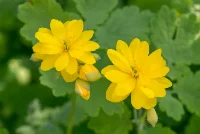Rose Hips for Wellness
/There's nothing like a rose to stimulate feelings of wellbeing. And nothing quite like rose hip - the actual fruit of a rose - to enhance health and promote wellness.
Of all the roses, the beautiful Wild Dog Rose is the type most often cultivated for their hips. Once the flower has bloomed, and all the petals have fallen off, the hip is picked and used in a range of herbal preparations. Rose hips contain a variety of antioxidants (especially Vitamin C), Vitamin A, carotenoids, and other plant compounds that are recognized for their role in preventing degenerative disease, including heart disease and certain types of cancer.
Many natural health practitioners use rose hip to treat wounds and inflammation. Rose hip oil is commonly used in cosmetics as it has the ability to revitalize skin cells. It has been used to treat scars, acne and burns. In Germany, rose hip powder (capsule) has been used to treat osteoarthritis and rheumatoid arthritis. Herbalists have long used rose hip tea to ease constipation and as a supplement to treat a cold.
Rose hip pulp can be incorporated into sauces or made into a jelly. Standardized extracts are also available in capsules. Always check with Dr. Bossio or your wellness practitioner before using any herbal remedy.
Image Attribution: Anna21/bigstockphoto.com


